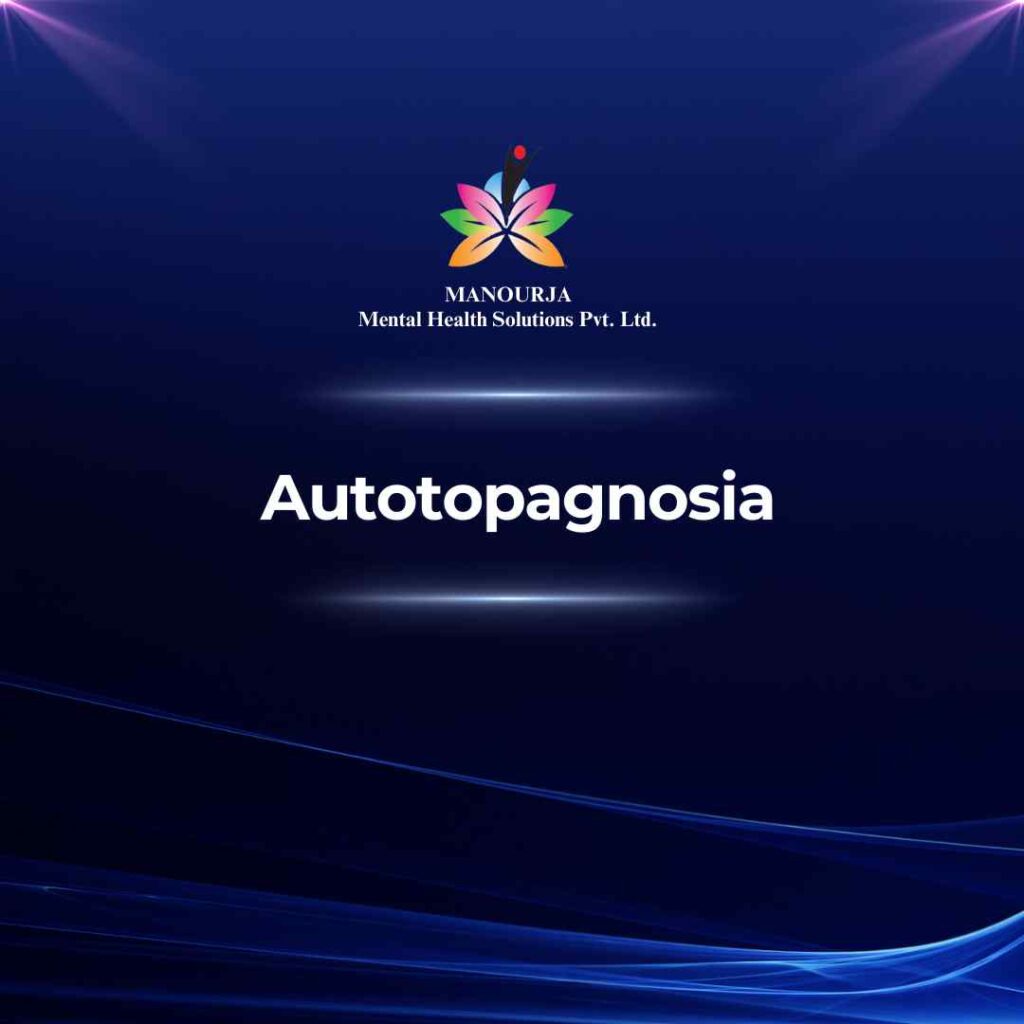Autotopagnosia

Autotopagnosia is a neurological disorder characterized by the inability to localize and identify one’s own body parts or to recognize their spatial relationships. It is a specific type of body schema disorder where individuals have difficulty integrating sensory information about their own bodies. This condition can lead to difficulties in performing everyday tasks that require awareness of body parts and their positions.
Autotopagnosia as a Sign of Mental Illness
Autotopagnosia itself is not considered a sign of mental illness, as it is primarily a neurological disorder resulting from damage to specific brain regions involved in body awareness and spatial cognition. However, individuals with certain mental health conditions may experience autotopagnosia as a secondary symptom or complication, particularly in cases of acquired brain injury or neurodegenerative disorders.
Mental Health Conditions Associated with Autotopagnosia
Traumatic Brain Injury (TBI)
- TBI can result in various cognitive impairments, including difficulties in body awareness and spatial cognition. Autotopagnosia may occur as a consequence of brain trauma, particularly if the injury affects regions responsible for processing sensory and spatial information.
Stroke:
- Stroke affecting the parietal lobe or other regions involved in body schema and spatial processing can lead to autotopagnosia. Individuals may have difficulty recognizing their own body parts or localizing sensations on their bodies due to damage to the brain’s sensory integration areas.
Alzheimer’s Disease and Other Dementias
- Neurodegenerative disorders such as Alzheimer’s disease can result in impairments in body awareness and spatial cognition as the condition progresses. Autotopagnosia may emerge as a manifestation of cognitive decline and neurological dysfunction.
Neurodevelopmental Disorders
- While autotopagnosia is not typically associated with neurodevelopmental disorders, individuals with conditions such as autism spectrum disorder (ASD) or developmental coordination disorder (DCD) may experience challenges in body awareness and spatial perception that could resemble aspects of autotopagnosia.
While autotopagnosia primarily arises from neurological conditions rather than mental illness per se, addressing its impact on daily functioning and quality of life may involve multidisciplinary approaches including neurological rehabilitation, occupational therapy, and supportive interventions tailored to the individual’s specific needs and challenges.
At MANOURJA, we believe in the transformative power of counseling. Our experienced therapists offer a safe and supportive space where you can explore your thoughts, emotions, and challenges. Through personalized counselling sessions, we’ll work together to develop coping strategies, build resilience, and achieve lasting positive change. Discover the path to a healthier, happier you with MANOURJA counselling services.
MANOURJA Rehabilitation Services
At MANOURJA, we’re dedicated to helping you in rebuild your life, after difficult times. Our rehabilitation services focus on understanding what you need to move forward, whether you’re recovering from addiction, trauma, or any psychological – social challenges. We create personalized plans, that are all about helping you, regain your strength and find hope again. With a caring team by your side, you’ll have the support to make real progress and take steps toward a brighter, healthier future
